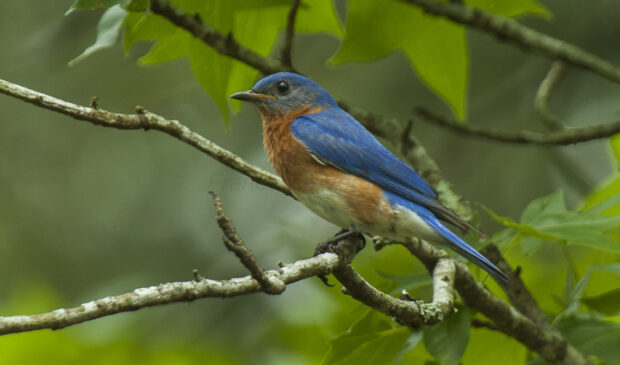Council approves added protections for birds and trees in new construction
Friday, November 22, 2024 by
Amy Smith Birds and the trees that serve as their habitats gained renewed attention from City Council on Thursday with the approval of two measures calling for enhanced protections for both.
For the birds, a resolution sponsored by Mayor Pro Tem Leslie Pool directs the city manager to explore bird-friendly building standards and develop recommendations for amending city building regulations, with careful consideration of potential cost impacts on development projects.
The bird-friendly design standards for new buildings would make Austin the first city in Texas to implement such protections, following the lead of other U.S. cities such as New York City, San Francisco and Madison, Wisconsin.
The item also seeks updates on the city’s 2021 Lights Out Austin initiative and its expansion to include city-owned buildings outside of downtown. The initiative encourages residents and property owners to turn off nonessential lighting during migrating seasons to prevent birds from crashing into buildings.
The resolution builds on the findings of a working group of the Environmental Commission, which included commissioners, developers, architects and conservationists.
Commissioner Jennifer Bristol, who chaired the working group, told Council that Texas loses more than one billion birds per year to collisions with buildings.
“We cannot sustain that,” she said. “All of our different biodiversity depends on the collaboration of insects, birds and us.”
Before the vote, Pool said, “Our river corridor is especially popular with migrating birds, and I’m hoping that we might be able to provide safer travels to our bird friends on their migratory pathways.”
In addition to individual speakers who testified in support of the measure, Council received about a dozen letters of support from organizations such as Audubon Texas, the Travis Audubon Society, Texas Children in Nature Network, Black Women Who, the Wild Basin Research Center at St. Edward’s University and others.
Co-sponsors of the resolution included Council members Zo Qadri, José Velásquez, Vanessa Fuentes and Paige Ellis.
Speaking for the trees, Council Member Ryan Alter introduced a resolution to give smaller trees a longer lifespan through an incentive program to encourage the preservation of trees with a diameter between 8 inches and 18 inches on residential lots. The item directs staff to apply credits that would go toward development fees under HOME 1, which allows the construction of up to three residential units on one lot. Currently, trees on residential properties with diameters less than 19 inches are not protected by code.
In passing the first phase of HOME, Council directed the city manager to make recommendations to increase tree preservation and tree plantings.
“We are taking a meaningful step to incentivize the preservation of these trees when people are building homes on a residential lot,” Alter said before the vote. “I’m very encouraged that we are moving forward here today and excited to see these trees grow to be some of the most valuable infrastructure we have.”
The Austin Climate Equity Plan sets a citywide tree canopy goal of 50 percent by 2050. As of 2022, the city had achieved 41 percent of tree canopy cover.
The resolution states the credit program should balance the incentives “with an appropriate consequence to be imposed upon the developer if any of the proposed protected trees are not properly preserved during the construction period.”
Joining Alter on the resolution were Fuentes, Velásquez and Chito Vela.
Other Council members added their names as co-sponsors of both the bird and tree resolutions, which passed unanimously.
Photo by Francesco Veronesi from Italy, CC BY-SA 2.0, via Wikimedia Commons. This story has been changed since publication to correct Jennifer Bristol’s name.
The Austin Monitor’s work is made possible by donations from the community. Though our reporting covers donors from time to time, we are careful to keep business and editorial efforts separate while maintaining transparency. A complete list of donors is available here, and our code of ethics is explained here.
You're a community leader
And we’re honored you look to us for serious, in-depth news. You know a strong community needs local and dedicated watchdog reporting. We’re here for you and that won’t change. Now will you take the powerful next step and support our nonprofit news organization?






